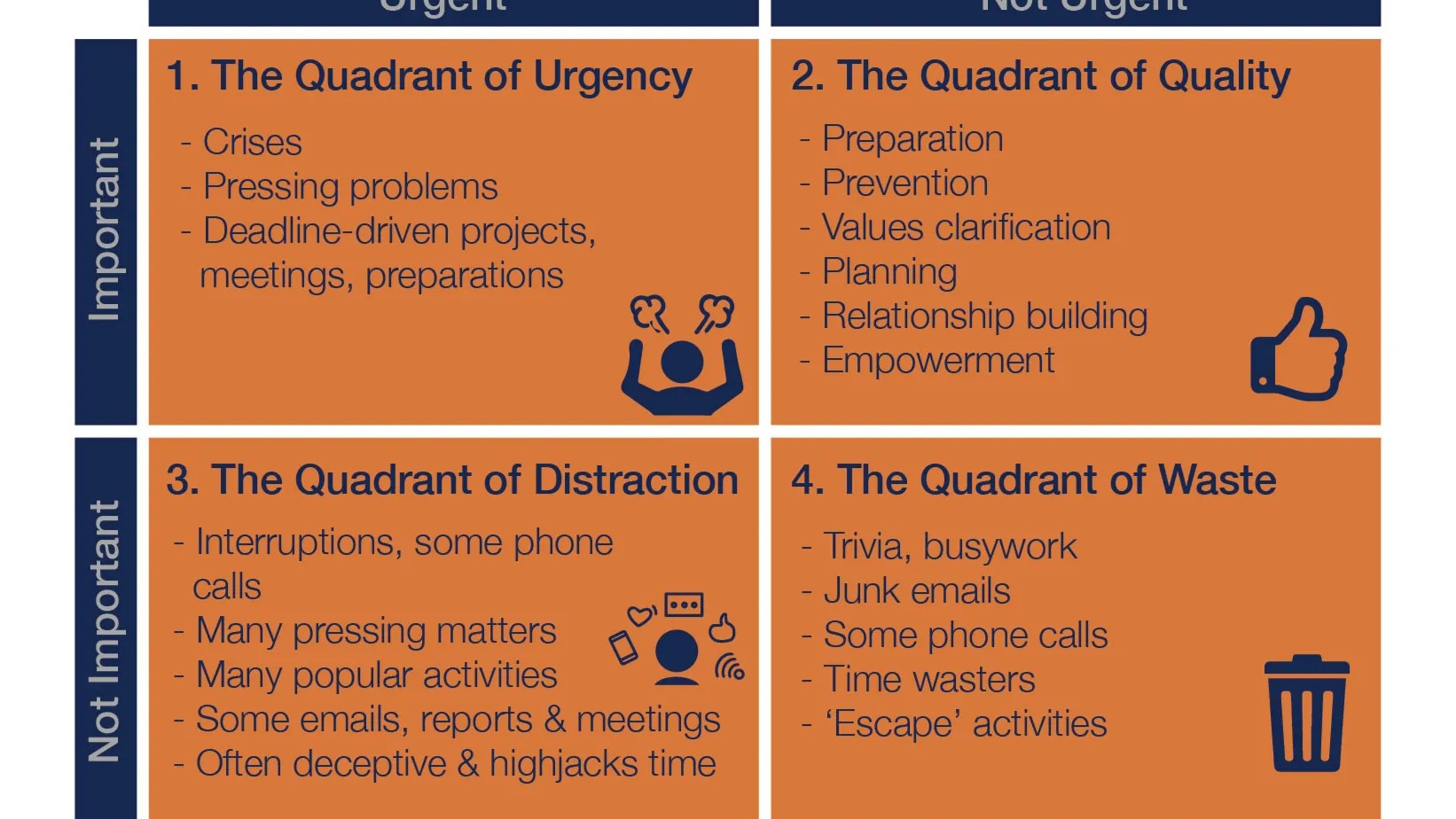Habit 3: Put First Things First From The 7 Habits of Highly Effective People
Sep 23, 2023 · 2 mins read
0
Share
![[Downloader.la]-650e9390b0d07.jpg](https://resizer.memodapp.com/v1/image/images/ayB2lK.jpg?w=500)
Habit 1 taught us to be proactive, to be in charge of the situation, and to create our own paradigms, Habit 2 helped us to translate those paradigms into principle-centered mission statements through visualization. Habit 3 is the physical creation and fulfillment of Habits 1 & 2.
Save
Share
Put First Things First: The first priority is self-management. It is the process of arranging and managing yourself on a daily basis in order to achieve your declared values and goals; the things that are essential to you.
Save
Share
Four Generations of Time Management:
First Generation: Notes and Checklist, The initial generation of time management tools focused on organizing all of the many chores and to-dos into checklists and Post-It notes.

Save
Share
Second Generation: Calendars and Planners, taking all the to-dos on your checklists and organizing them into a schedule.
Third Generation: Goal Setting and Daily Planning, adding prioritization by clarifying your values and setting long- and short-term goals.
Save
Share
The fourth generation is self-management, it focuses on controlling yourself so that you can actively choose the responsibilities that will have the greatest impact on your life and make adjustments as necessary.
Save
Share
Quadrant II actions are non-urgent yet essential agenda items. An opportunity-minded individual concentrates on actions that are significant but not urgent. They plan strategically and preventively, feeding opportunities while starving difficulties.
Save
Share
The ability to control your desires and devote yourself to vital, but non-urgent tasks is an important characteristic of a Quadrant II person. For example: A healthy diet, exercise, and reading a book are all vital, but not urgent.
Save
Share
You must spend the majority of your time in Quadrant II, the paradigm of self-management, in order to prioritize first things first. It demands you to consider ways to avoid situations becoming urgent, to prepare ahead, and to cultivate relationships.
Save
Share
How to execute it?
Every week, set aside 30 minutes to plan your week. Daily planning is insufficient to provide you with the big picture. Daily planning will ensure that you are only responding to crises and not developing momentum on the things that are truly important.
Save
Share
The solution is to shift your paradigm from one of urgency to one of importance. When you have a deeper value or objective connected to your own mission and vision that is burning inside of you, it is simpler to say no to minor things.


Save
Share
0